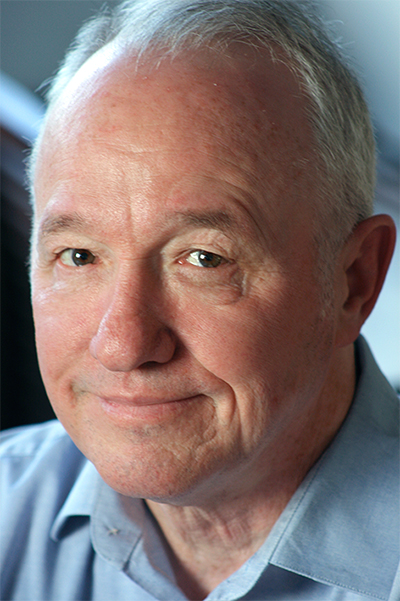Why is Australia trailing Canada in key innovation metrics?
By John Sheridan, Digital Business insights >>
CANADA LEADS Australia in economic complexity – 41st to 93rd – and also with knowledge diffusion – 41st to 72nd.
Which is interesting. But probably not that surprising.
Australia and Canada are both neck-and-neck for knowledge creation – Canada 16th and Australia 17th, but when it comes to sharing knowledge, Canada is 41st and we are 72nd.
We are similar sized countries, both reliant on mineral exports and agriculture to a lesser extent.
But Canada has a bigger population – 40 million, to Australia’s 27 million, and has over 100 universities to Australia’s 42.
And Canada still has a car industry, where Australia made one of the worst decisions ever and closed our car industry down. Weakening our manufacturing sector considerably. [Editor’s note: Tony Abbott was Prime Minister at the time of this decision].
Rebuilding a manufacturing economy is hard. Rebuilding economic complexity is hard.
And we are not going to do it without becoming a lot better at knowledge diffusion – sharing the knowledge that we create. 
Poor at sharing knowledge
Canada and Australia are both good at creating knowledge, but Australia is bad at sharing it.
We must do better.
We know that knowledge diffusion would help the country considerably. The Productivity Commission spelled that out in 2022:
“While novel, ‘new-to-the-world’, innovation is an important source of economic performance, it relates to only one to 2 percent of Australian firms. The slow accretion of existing knowledge across the economy — diffusion — is often overlooked as a source of productivity. It has the scope to lift the performance of millions of businesses.” – Productivity Commission, 2022.
We must take action
We need to do three things to improve our situation.
1: We need to share knowledge effectively and strategically and remorselessly. Share the knowledge generated in our universities with SMEs and high schools across the country.
Our underfunded universities, need to do what they can to share the innovations and ideas generated within, that could be useful to SMEs across the country. SMEs don’t know what they don’t know. So, we need to orchestrate knowledge diffusions and not just hope for the best.
We do a lot of ‘hoping for the best’ in Australia, but don’t take much action to achieve it.
We know what all the issues are. But we do little to fix them.
2: We need to share knowledge with our startup incubators to provide them with ‘market intelligence’ helping them to better target their innovations and ideas. Customer interest. Competitive advantage.
There are incubators across the country all doing their best to help and support the startups that have “good ideas”. But if we are going to get serious about supporting innovation in this country, we have to improve the model.
We need to share market intelligence nationally. We need to share a better understanding of where Australia could compete. Of where Australia intends to compete.
What is the vision and direction for the economic rebuild? 10 years? 20 years?
We are not just good at selling iron ore and coal. We could also export many other products and services to the world. What does that ‘map of possibility’ look like?
Nobody knows.
There should be a clear vision of that national goal in every business, high school and university across the country.
3: We need to approach innovation in the same way we approach sport in this country. Go for gold. Lots of it.
We need to share case studies of the journey to success. Ask our leading innovative businesses “Who are you? What do you do? Customers? Why you began? (What problem did you solve) Reasons for success? What next?”
We can all be inspired by the story and example of what our successful businesses have achieved. And learn from the example of how they achieved success.
Go for gold, properly
If we managed our sporting potential in the same way we manage our incubators, we would expect that putting a few dollars into sports clubs across the country from time to time is all that it takes to generate and support gold medal winners at the Olympics.
That would be absurd of course. We use the sports clubs as the nurseries for sports potential, but we then select the real potential though competitions. We pick winners. And then nurture them through more competition, and finally through coaching and sports institutes.
We need to do the same with business. Catalyse innovation at the ‘grass roots’ and then pick winners for the ‘Australian Institute of Innovation’ to rebuild the economy and maximise the number of ‘gold medals’ at the ‘Export to the world Olympics’.
We have the brainpower in our universities.
We have the design, branding, coaching and training skills across the country. But all isolated. Insular. Parochial.
Rather than Collaborative. Holistic. Expansive.
It is time to get serious in the way we deliver.
Stop hoping for the best.
Move beyond planning for the best.
Start ‘being’ the best that we can be.
Because we have it all here. The brainpower. The mineral resources. The potential.
We just need to start sharing, collaborating and rebuilding.
93rd is not good enough.
72nd is not good enough.
We can head towards number 1.
Starting today.
About the author
John Sheridan is the CEO at Digital Business insights, the company behind the creation of the Regional Economic Development (RED) Toolbox and myRegion Australia. The RED Toolbox has been steadily developed over the past 12 years to provide a collaboration platform for Australian economic development, including a range of showcases that promote national and international trade opportunities and connections. Its latest iterations have adopted the brand myRegion and work closely with regional development authorities nationwide.
ends

 How to resolve AdBlock issue?
How to resolve AdBlock issue?